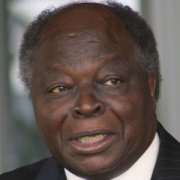E-participation Engages Worldwide Participation
Nation states, civil society groups, and private sector representatives from around the world, convened earlier this month at the Open Data Partnership (OGP) in Washington D.C. to discuss the best practices of open data e-government tools.
On July 12, more than 60 governments and 60 civil society groups joined the United States and Brazilian governments to pledge support on initiatives encouraging citizen’s participation, putting voters at the heart of solving their own society’s complex social issues.
The OGP is a new, multilateral initiative aiming to secure and define commitments from governments worldwide to promote transparency, empower citizens, fight corruption, and harness new technologies to strengthen governance.
The formal launch of the OGP is set for this September, when participating governments will embrace an Open Government Declaration, and announce their country action plans to promote OGP principles.
Last September at the United Nations General Assembly, President Obama challenged countries to embrace open government saying:
When we gather back here next year, we should bring specific commitments to promote transparency; to fight corruption; to energize civic engagement; and to leverage new technologies so that we strengthen the foundation of freedom in our own countries, while living up to ideals that can light the world
The new technologies that President Obama refers to are starting to be used throughout the globe—including Kenya’s Open Data Initiative and Huduma. These tools enable citizens to use their mobile phones or web browsers to bring public service problems that they encounter everyday to public discourse.
Viviane Reding, Vice President of the European Commission once stated that, “participation is the real goal of e-government,” and city administrators from Washington to Bangalore actively are recognizing that citizen reporting tools can help highlight some of the worst social and public service issues within their cities.
This acknowledgment infers that top down designation of funding will no longer be the course that that future governments around the world will take.
Notably, countries such as Mexico, Brazil, Indonesia, India, Mexico, Norway, Philippines, South Africa, United Kingdom, and the United States and several large civil society groups—took part in the OGP pledge.
This is a huge step towards civil society empowerment, enabling the tax paying citizens to take collaboratively take charge of the changes they want to see in their communities—truly giving power back to the people.






































